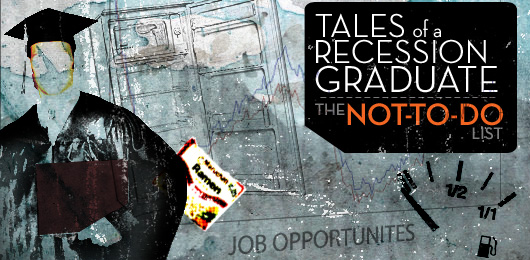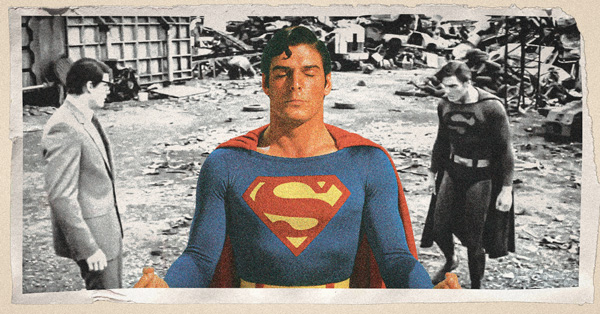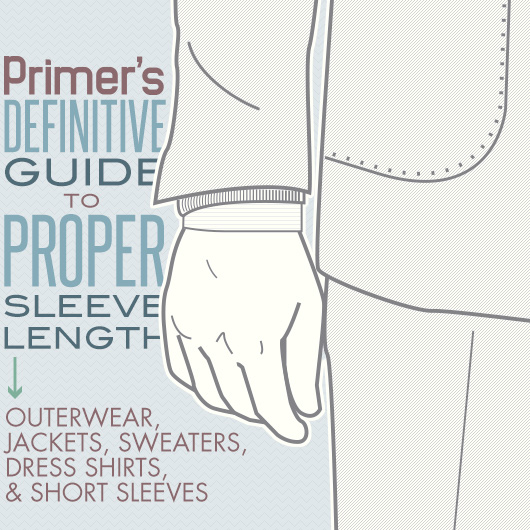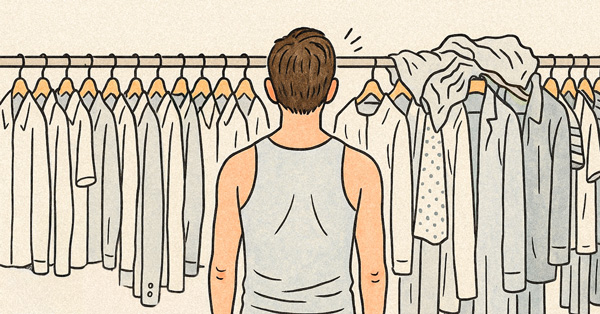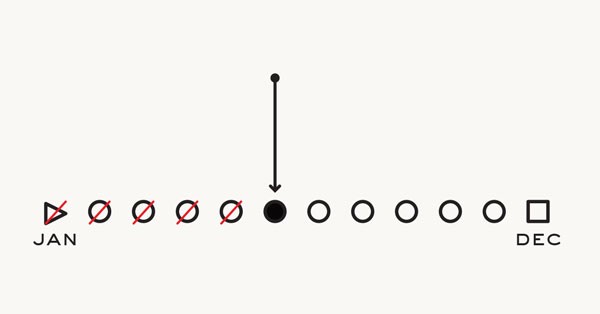On September 26, 2008, the Federal Deposit Insurance Corporation (FDIC) took over Washington Mutual bank in what was the biggest bank failure in our nation’s history. Fifty days later, I completed my college career, earning a bachelor’s degree in Film and Media Arts. In the past year and a half, I have tried a number of things to jump aboard that money train, only to find myself either unemployed or severely under-employed.
I was desperate for someone to show me the light, provide me with a to-do list on how to be a successful recession grad, when it hit me: All I had to do is make a list of everything I already did, and do the exact opposite.
With that in mind, here is the Not-To-Do list for everyone who already has or is about to graduate in this recession.
1. Graduate in a Recession
If you can avoid this one, then this article isn’t really for you. But let’s face it if you have over 100 credits or can call yourself an upperclassman, then it’s pretty likely that you’re going to graduate during this recession. By the time 2008 rolled around, I was done with school. I put all of my energy into graduating as soon as possible, and crammed 39 credits into one year. This did me far more harm than good. Due to my heavy workload my GPA suffered, I put in fewer hours at work, made less money, and was generally cranky. By the time I walked off of campus for the last time, I had less than $300 to my name, and my GPA had dropped to a 2.9. (If you think GPA doesn’t matter after you graduate, I was denied three different jobs for not having a 3.0 or higher on my transcripts.)
2. Live on Your Loans
I started college as a commuter at a suburban school, still living with my parents. A few years in, I decided I had enough of that situation. I changed majors, changed schools, and moved into the city. I went from taking out about $5,000 in federal loans per year to racking up nearly $20,000 per year in mostly private loans. I used my loans to pay rent, buy food, pay tuition, and buy books. My reliance on private loans has cost me more than any other mistake I made.
I spoke to a representative from a certain private loan company in January, asking for a bit of a break as I was unemployed and completely out of money. They gave me the option of paying them a $150 fee to put a one month hold on my $250 payment, after which I’d have to pay $500 the following month. That $150 fee would not be counted towards paying off my loan. This is the best option any company has given me for deferment thus far, so needless to say, my credit score is not at it’s highest right now.
3. Relocate Without Researching Your New Hometown
In January 2009, a couple of weeks after finishing school, I moved to Myrtle Beach, SC to live with my girlfriend. I figured I’d save some money with a low rent payment and get a job with the local news station, seeing as Myrtle Beach isn’t the biggest television market in the country. With proper research through a site such as citydata.com or even the local newspaper’s website, I would have known that South Carolina had the third-worst economy in the country, and the county in which I was moving to was the worst in the state.
By the time I arrived, everywhere I had applied had put on a hiring freeze and the only job I could get was working for nine bucks an hour. A little of research would have gone a long way.
4. Relocate Without A Job
After a year of living paycheck to paycheck in Myrtle Beach, you would think I learned my lesson about moving somewhere without having a job lined up. Well, I didn’t. This past December I had a promising phone interview with a former employer. He said he’d like me to come in for an in-person interview as a formality, commenting that he already knew I was good enough for the job. You can imagine my surprise when I moved back up north to find someone else had been given the job.
I do, however, feel the need to clarify that I do not think you should limit yourself to an area know. Just be sure you have a guaranteed job wherever it is you decide to relocate.
5. Accept Any Position
A few weeks after not getting the aforementioned job, I had another promising phone interview for a film and television marketing job. The job was a management position with benefits and around $30,000 per year. The woman who spoke with me kept in touch with me after the interview, repeatedly insisting I was her prime candidate for the position. But I wasn’t going to be fooled by the same phrase twice, and I waited until I was actually offered a position before scaling back on my job hunt.
After a couple of weeks, I was called by my interviewer, who said that the company was unable to fly someone out to interview me in person at the moment, and asked if I’d like to work an hourly position alongside my future employees in the meantime. In doing this, the company was able to attract candidates for a higher position and con at least three of us into working for twelve hours a week at $10 per hour.
After working a month without receiving a check, I left. A few weeks later, after finally hunting down the pay I was owed, I found out there was never a real plan to create the position I was interviewed for.
6. Stop Looking
While I certainly did numbers one through five on this list, I haven’t done this one. I have been consistently looking for and applying to jobs for the entire year and a half I’ve been out of school. Out of over 200 applications, I’ve only had about a dozen interviews, but I haven’t given up. The more you look for jobs, the more likely you are to find one that suits you. Sites like Linkedin.com and Careerbuilder.com are a good way to start. Use your Facebook network to see where friends and friends of friends have jobs in your field. Make connections, be persistent, and always keep a resume handy (you never know when you could run into someone who could possibly help your career along).
My persistence in the job hunt has paid off. I scored a gig working with Dancing With the Stars, substitute taught during the school year, worked as a freelance wedding videographer, and began working as a camp counselor at a museum for the summer. Working with the television show was a crash course in the entertainment business, and I loved every minute of it. Teaching and being a counselor has reignited my passion for my original major, education. I’m now looking into getting a master’s degree in some form of education while continuing to pick up as many media gigs as I can on the side.
With my own job hunt looking better every day, I can say I’ve learned form my mistakes, and hopefully that learning has now been passed onto you. So while the outlook for all of us recession graduates is admittedly dismal, just remember that the key to success lies in being positive, proactive, and not stopping until you get the job you want. Good luck, and happy hunting!



